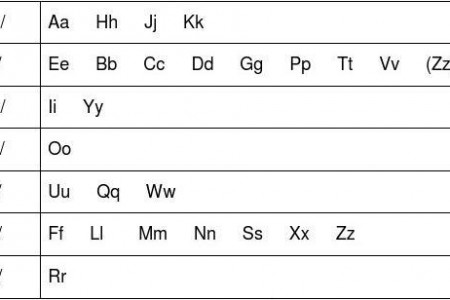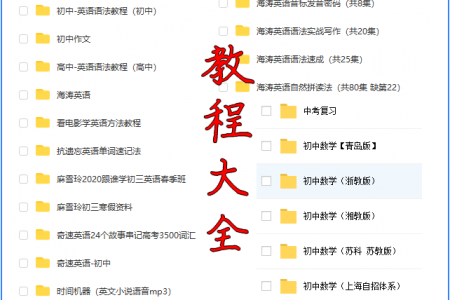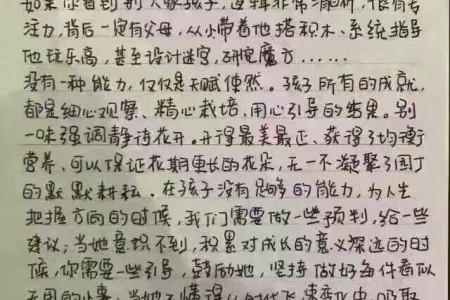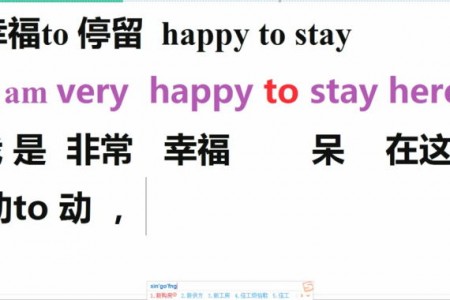苏教版3-6年级小学英语语法大全练习
这里把前面整理的小学英语语法
做成了试卷形式,因为我发现只是让孩子单纯的照着教材学习,还是不容易掌握,懂了和熟练掌握是两回事,要想熟练掌握,考试时不丢分,还是需要一定的练习,所以特地改成了试卷形式,打印了多份,间断性的一遍一遍地练习,直到彻底掌握为止。
苏教版3-6年级小学英语语法大全练习
第1讲 字母
1、英语中共有 个字母。 是元音字母, 是半元音字母,其余是 字母。
2、英语常用缩写词:
中华人民共和国, 联合国, 世界卫生组织, 美国职业篮球联赛, 肯德基, 信息技术, 情商, 中国中央电视台, 克, 上午, 美国, 香港, 世界贸易组织, 中国男子篮球联赛, 自动柜员机, 身份证, 中央处理器, 英国广播公司, 厘米, 下午, 英国, 国际求救信号, 不明飞行物, 贵宾, 邮政特快专递, 智商, 人民币, 美国之音, 号码
第2讲 语音
1、英语中共有 个音素,其中元音音素 个,辅音音素 个。
2、 发音时声带不振动; 发音时声带振动。
6、开音节,(举3个例子): 、 、
闭音节,(举3个例子): 、 、
第3讲 名词
1、专有名词:特定的人、地方、机构等专有的名称。第一个字母通常要大写。
Jim Green,纽约 ,中国银行 ,
北京大学
星期、月份、节日、学科、报刊名也是专有名词。
星期一 ,五月 ,圣诞节 ,春节 ,数学 ,中国日报 。
2、集体名词:
班级 , 家庭
① 集体名词被看作一个整体时,表达单数概念。
His family (be)well known in the town.
② 集体名词被看作若干个体的集合时,表达复数概念。
His family (be) waiting for him.
③ 集体名词表达多个集体时,也有复数形式。
Our village (be)made up of 300 families.
3、可数名词复数形式的构成:
①Book( ),bag( ),cat( ),bed( )
② bus( ),box( ),brush( ),watch( )
③baby-( ),library( ),factory( )
④thief( ),knife( )
⑤photo( ),piano( ),radio( ),zoo( ),potato( ),tomato( ),mango( ),hero( )
⑥不规则变化
man( ),child( ),foot( ),fish( ),woman( ),mouse( ),tooth( ),sheep( ),policeman( ),ox( ),goose( ),deer( )
▲▲My cat had two( ) for lunch.(两条鱼)
You can see a lot of different( ) in the lake.(鱼类)
4、一瓶水( ) ,一杯咖啡( ),两杯牛奶( ) ,五包大米( )
▲▲二篮子鸡蛋( )
5、既可作可数,又可作不可数的名词。
玻璃( ),纸( ),铁( ),木头( ),美( ),空间( )
一只玻璃杯( ),一份报纸、论文、文件( ),一个熨斗,一片森林( ),一个美人( ),一个房间( )
6、名词所有格
① book(汤姆的书)
② the office(老师们的办公室)
③ and bedroom.(Lucy和Lily的卧室)
and Lily’s .(Lucy的卧室和Lily的卧室)
④ 一张世界地图( ) ,一张我家人的照片( )
⑤ 我爸爸的一个朋友( )
第4讲冠词
1、用a,an、the填空。
bed, computer, “U”,
egg, umbrella, hour
2、 man with a flower in his hand is Jack.
3、Lily, close door, please.
4、There is man under the tree. man is called James.
5、 sun is bigger than moon.
6、It is first day of the new term.
7、He often plays violin at weekends.
8、Spring is best season in a year.
9、I went to Great Wall last week.
10、He is from UK.
11、零冠词,即名词前不用冠词。吃早饭 ,打篮球 ,
下象棋
第5讲代词
1、我是一个学生。 .
他们正在打扫教室。 .
请告诉她,仔细听我说。Ask , please. Listen to carefully.
2、名词性物主代词。
那是你的自行车吗?—Is that bike?
不,我的是蓝色的。—No. is blue.
3、(1)用some和any填空。
There are flowers in the garden.
There isn’t milk in the fridge.
Do you have hobbies?
—Would you like coffee?
—Yes, please.
—Mum, can I have peaches?
—Sure.
(2)用both和all填空。
We are policemen.
They are in the room.
(3)用many和much填空。
My uncle has stamps.
There is tea in the cup.
(4)用each、other和every填空。
I’ll buy a present fo r of her parents. 我要为她的父母每人买一件礼物。
book in his study is interesting. 他书房里的每本书都很有趣。
We study Chinese, English, Maths and subjects.
(6)用something和everything填空。
I want to drink.
Tell me about you.
(7)用nobody填空。
She likes nobody and likes her.
第6讲形容词
1、Are you your twin sister?(一样高)
I’m you.(不一样高)
He’s one year younger me.(比)
2、写出下面形容词的比较级:
Tall ,long ,strong ,young
late ,nice ,heavy ,fat ,thin ,big
beautiful ,careful
good ,many , much ,far ,bad , ill
3、用最高级填空:
Autumn is the season in New York.(在纽约,秋天是最好的季节)
She is our three.(她是我们三个当中个子最高的)
第7讲副词
1、翻译成汉语。
dance beautifully( ),listen carefully( ),sit quietly( ),speak loudly( ),very happy( )
2、写出下面副词的比较级。
carefully( ),more quietly( )
第8讲介词
1、in
① 在教室里面
② 穿着白色的衣服Who’s the man ?
③ 用英语说What’s this ?
④ 在早晨 ,在下午 ,在晚上
⑤ 在2008年 ,在八月份 ,在夏天
⑥ 在中国 ,在无锡 ,在操场上
⑦in the middle of( ),do well in( ),在白天 ,take part in( ),躺在床上 ,在街上
2、on
① 在课桌上面
② 在五月五日 ,在星期天 ,在星期一早晨 ③ 在儿童节 ,on New Year’s Day( )
④ 步行 ,on duty( ),穿上 ,上车 turn on( ),在右边/左边 ,on the wall ( ),on Zhongshan Road( )
I can see a lot of apples the tree.
There is a boy the tree.
3、at
① 在7点钟
② 在春节 ,在中秋节 ,
在圣诞节
③ 在公共汽车站
④ at once( ),擅长…… ,看…… ,
在家 ,在学校 , 在周末 , at the back of ( ), 在夜晚
4、在……下面,There is a cat the table.
5、在……后面,There is an umbrella the door.
6、靠近…… ,There is a park my house.
7、在……旁边,The students are standing the teacher.
8、紧靠……旁边,The teachers’ office is our classroom.
9、(时间上)在……之前, class(上课前)
10、(时间上)在……之后;依照
课后 ,放学后 ,照看 ,run after ( ),跟我读
11、在两者之间,
There are some trees Building A and Building B.
12、乘某种交通工具,
bus,乘飞机 ,by the way( )
13、
① (来自……)有两种表达法,
Mr Smiths from Australia.
②(从……到……),
We go to school .(从星期一到星期五)
14、到、去…… ,Let’s go the zoo.
给xx写信
15、关于;大约
I want to buy a book animals.
It’s one kilometer away.
16、为、给……
Here’s a letter you.
What’s breakfast?
look for ( ),等候
17、① 与……一起。
I’ll go shopping my mother.
② 具有某种特征。
Who’s the boy big eyes?
③ 在某方面帮助某人
Can you help me my English?
④和……一起玩;拿……玩
play me,play a yo-yo
18、在……前面
There is a tree the classroom.
在……前部:There is a blackboard the classroom.
19、沿着,顺着,Go this street.
20、作为:What would you like a birthday present?
21、从……出来;往……之外
The dog is running of the house.
22、……的,属于……,a map China ,a map the world
23、离开,在……之外
keep off the grass( ),下车get off
24、向上,起立 ,pull up carrots(拔胡萝卜)
25、向下,坐下 ,上下跳跃
第9讲数词
一、二、三,需要记,八去t,九省e,ve结尾时,f来代替,ty结尾时,y变ie,再加th,若是几十几,前基后序别忘记。
第10讲连词
1、“和”,表示并列关系。
There are some desks chairs in the classroom.
2、“但是”,表示转折关系。
You can skate well, I can’t .
3、“还是”,表示选择关系。
Would you like a glass of milk a cup of tea?
Do you have any brothers sisters?
I don’t have any brothers sisters.
4、“比”,表示对比关系。
Su Hai jumps farther Su Yang.
5、“因为”,表示因果关系。
I like summer best I can go swimming.
6、“所以”,表示结果关系。
Helen was ill , she didn’t go to school yesterday.
第11讲动词
1、I am a teacher. You are a student. She is a (护士). We are Chinese.
2、 you like this film?
she like playing football?
I go to school yesterday.(否定式)
3、
1)can、may
I use your pen?
I come in?
2)must、should
You finish your homework before you go to bed.
You stay in bed and have a good rest.
3)will、would
you please open the window?
you like some coffee?
(注意like)I’d some tea.(我想要一些茶)
I’d go with you.(我想和你一起去)
(我喜欢猴子)
(我喜欢阅读)
4)shall
go there by bus?(我们乘公交车去那里吗?)
第12讲一般现在时
1、填写下面表示经常性时间的短语。
通常 ,经常 ,每天 ,有时候 ,总是 ,在周末 ,在星期天 。
2、翻译句子:
我是一个学生。
他是Jim的爸爸。
他们来自日本。
3、I often TV at the weekends.(watch)
Mr Green and Mrs Green collecting stamps.(like)
Jim usually his grandparents on Sundays.(visit)
She sometimes to the park with her mother.(go)
4、填写三单形式:
read ,swim ,wash ,watch ,do ,study ,fly ,have 。
第13讲 现在进行时
1、用适当形式填空。
I clothes now.(wash)
Look! Liu Tao the tree.(climb)
Listen! Jane in the music room.(sing)
2、 写出分词形式。
read ,drink ,eat ,look ,
write ,make ,ride ,take ,
sit ,swim ,put ,run ,
stop ,get ,begin ,jog ,forget , chat 。
3、动名词其实就是动词的现在分词,它既有名词性质(可作主语),又有动词性质:(可带宾语)。
the way.(Ask)
My hobby is stamps.(collect)
He is good at .(skate)
第14讲 一般过去时
1、用适当形式填空。
My brother often to school by bike last term.(go)
The watch beside the diary a moment ago.(be)
I the moon and the moon cakes last Mid-Autumn Festival.(watch、eat)
Jim to the supermarket yesterday.(go)
2、填写过去形式。
play ,listen ,look ,live ,like ,taste ,study ,carry ,cry ,stop ,plan ,am/is ,are ,have/has ,do ,go ,
sit t,tell ,see ,get ,make ,give ,read ,buy ,come ,draw ,eat ,let ,sleep ,think ,say ,fly ,meet ,put ,run ,say ,sing ,swim ,take 。
第15讲 一般将来时
1、用be going to 的形式填空。
I a Beijing opera tomorrow.(see)
We at bus stop at half past ten.(meet)
Dad and I a Beijing opera this afternoon.(see)
2、用 will 的形式填空。
They this afternoon.(将去游泳)
3、be going to 和will 区别:
① be going to 表示经过事先安排、打算或决定要做的事情,基本上一定会发生;will 则表示有可能去做,但不一定发生,也常表示说话人的临时决定。
I take part in a party this evening.
They are cleaning the library now. I go and join them.
② be going to 表示近期或眼下就要发生的事情;will 表示的将来时间则较远一些。
He write a letter tomorrow.
I meet her one day.
③ be going to 还可以用来表示有迹象表明某件事将要发生,常用于天气等自然现象。
Look! rain.(天要下雨了)
第16讲 句法
1、陈述句:
1)We pandas very much.(都喜欢)
He housework at weekends.(不做家庭作业)
2)改为否定句。
Mary was at school yesterday. ——> Mary at school yesterday.
I can make a model plane. ——> I make a model plane.
He likes drawing pictures.——>He like drawing pictures.
I went to the park yesterday. ——>I go to the park yesterday.
3)改一般疑问句
Mary was at school yesterday. ——> at school yesterday?
I can make a model plane. ——> make a model plane?
He likes drawing pictures.——> drawing pictures.
I went to the park yesterday. ——> the park yesterday?
2、疑问句:
1)一般疑问句:
—— Is Mr Green the UK? —— Yes,he is. / No,he isn’t.(从哪里来)
—— Do you have hobbies? —— Yes,I do. / No,I don’t.(一些)
—— Can you ? —— Yes,I can. / No,I can’t.(弹吉它)
2)特殊疑问句:
—— do you go to work every day? —— I go to work by car.
3)选择疑问句:
—— Would you like tea coffee? —— Some coffee, please.(一些、或者)
4)反意疑问句:—— It’s a fine day, ? —— Yes ,it is.
3、祈使句:
1)用于第二人称,通常省略you。
翻译成汉语。
Open the door, please.( )
Don’t be late again.( )
2)用于第一人称和第三人称,通常以let(let后跟宾格)或shall开头。
翻译成汉语。
Let me have a look. ( )
Let’s play a game now.( )
Let him go home now.( )
Shall we meet at one thirty in front of the Garden Theatre?( )
4、感叹句:语气用降调。
1)what + 名词或名词性短语
What a big garden (it is)!( )
What an interesting storybook (it is) !( )
What lovely weather (it is)!( )
What pretty girls (they are)!( )
2)how 形容词或副词+主语+动词
How nice!( )
How beautiful the flowers are!( )
How tall Yao Ming is!( )
5、there be 句型表示在某地有某人或某物。
用be的适当形式填空。
There some milk in the fridge.
There some peaches in the basket.
There a ruler and five knives in the pencil case.
There five knives and a ruler in the pencil case.
3)there be句型和have/has区别:
翻译成汉语。
There are some English books on the desk.( )
I have some English books.( )
第18讲 话题
(这里主要是背诵)
1、介绍
My name is Tom.
I m Gao Shan.
This is David.
The man in a white coat is my father.
2、问候、告别
Hello! /Hi!
Good morning! / Good afternoon! /Good evening!
How are you? ------ Fine, thank you. / Not bad, thank you. / Not so good.
Nice to meet you. ------ Nice to meet you , too.
How do you do?------How do you do?
Goodbye! / Bye! / Bye-Bye!
See you (tomorrow/later).
Good night.
3、谈论人或物
What s your name? / Your name, please?
Who is he?
What s this in English?
How old are you?
Where are you from? / Are you from the USA?
What s your job?
What is she?
4、请求、劝告、建议、征求
May I come in?
Can I have a look? Yes. / Sure.
Sorry, you can t.
Don t forget to close the windows.
We must go home now.
Let s go to school.
Shall we go now?
Why don t you buy a new one?
What about a cup of tea?
Would you like a hamburger?
What would you like?
Yes, please. / Yes, I d like to./ Yes, I d love to.
No, thanks.
5、道歉、感谢、赞扬
Excuse me.
Sorry. / I m sorry.
---That s OK/all right. / It s doesn t matter.
Thanks. / Thank you. / Thank you very much.
Not at all. / You re welcome. / It s my pleasure.
It s pretty/ smart/nice.
How nice!
6、询问时间、星期及日期
What s the time? / what time is it now?
---It s twelve o clock. It s time to have lunch.
What day is it today?
---It s Sunday/Monday/Tuesday/Wednesday/Thursday/Friday.
What date is it today?
--- It s the 12th of July.
7、购物
Can I help you?/What can I do for you?/What would you like?
---I d like a/an/some… Anything else?
What about the red one?
How many kilos?
--- Five kilos, please.
How much is it/are they?
---It s /They re twenty yuan.
Here s your change.
8、打电话
Hello, may I speak to Nancy?
--- This is Nancy speaking. Is that Tom (speaking)?
---Yes, this is Tom speaking. Who s that(speaking)?
--- It s Liu Tao here.
Wait for a minutes. / Hold on , please.
Sorry, she isn t in.
9、问路、指路
Excuse me. Where s the nearest post office?
How can I get to the nearest post office?
Can you show/tell me the way to the nearest post office?
How far is the nearest post office from here?
How many stops are there?
Go along this road and then turn right/left at the third crossing. The post office is on your right/left.
It s over there. Near the Bank of China.
You can take bus No.8 and get off at the third stop.
Sorry, I don t know. You can ask the policeman.
11、谈论兴趣爱好
Do you have any hobbies?
What s your hobby?
Do you like swimming?
I (don t) like swimming.
We have the same hobby.
12、谈论天气
What s the weather like today?
How is the weather?
It s sunny/rainy/cloudy/windy/warm/cool/hot/cold.
Which season do you like best?
13、询问和表达感觉
What s the matter? / What s wrong with you? / How do you feel now? I m tired. / I feel ill. / I ve got a bad cough.
I m sorry to here that. / I hope you get better soon.
Take some medicine and have a lot of rest.
Here s some medicine for you.
I can get some fruit for you
14、谈论节日
When s Christmas?
------It s on the 25 of December.
What do people usually do on Christmas day?
What s your favourite holiday?
第19讲构词法
1、合成法:由两个或更多的词合成一个词。
basket(篮子) ball(球)=basketball(篮球)
post(邮寄)+office(办公室)=post office(邮局)
pencil(铅笔)+box(盒子)=pencil-box(文具盒)
2、派生法:由词根加前缀或后缀构成一个新词。
un usual(寻常)= unusual(不寻常);usual(寻常) ly = usually(寻常地)
3、转化法:由一种词性转化为另一种词性。
water 水(名词)―――water 浇水(动词)
light 灯(名词)―――light 轻的(形容词)
book 书(名词)―――book 预订(动词)
hand 手(名词)―――hand 上交(动词)
教娃网(jiaowa.ren)原创文章,未经允许,不得转载。
 微信赞助
微信赞助







苏教版3-6年级小学英语语法大全练习:等您坐沙发呢!